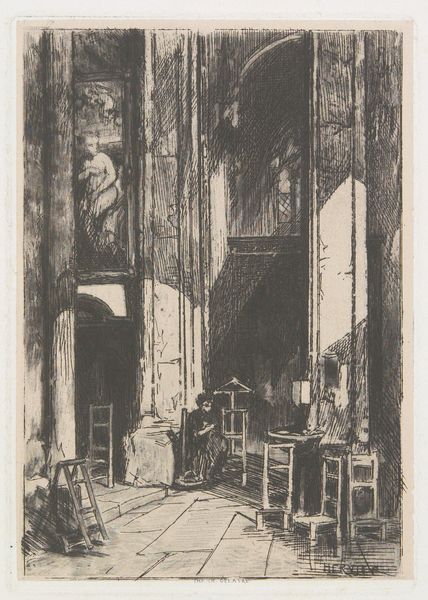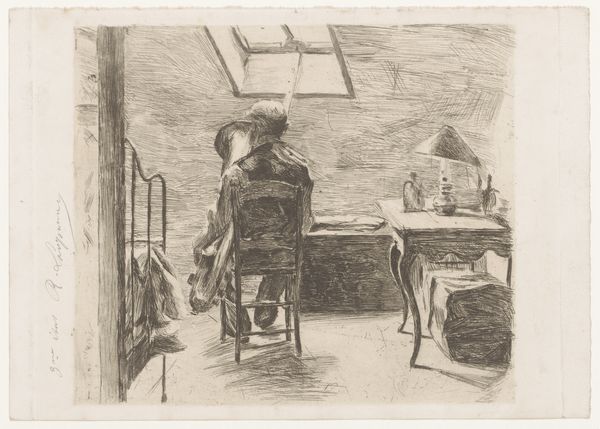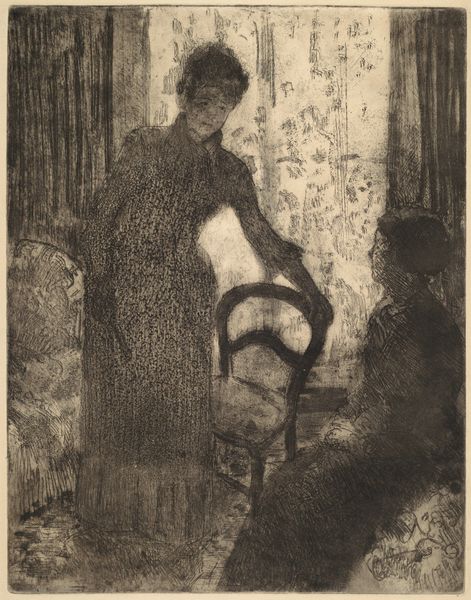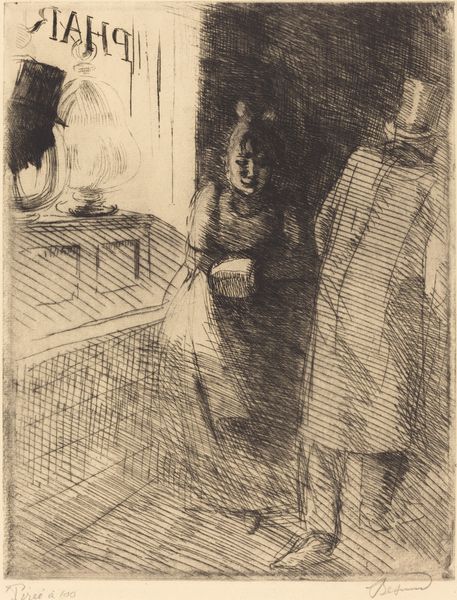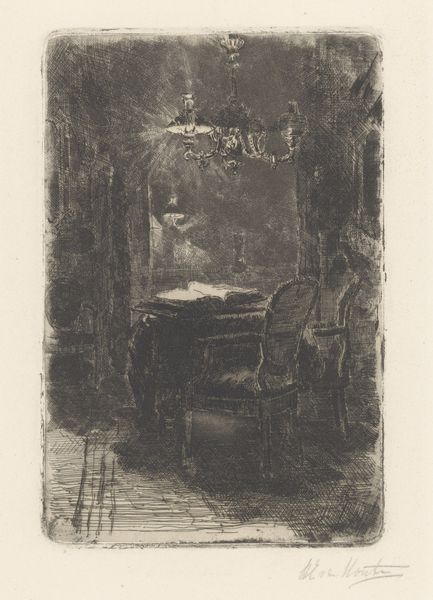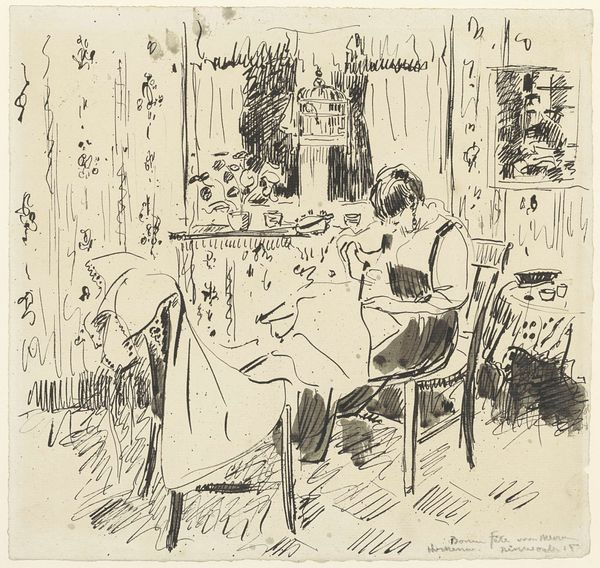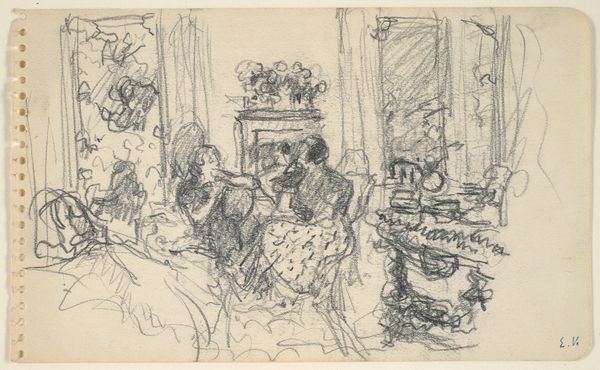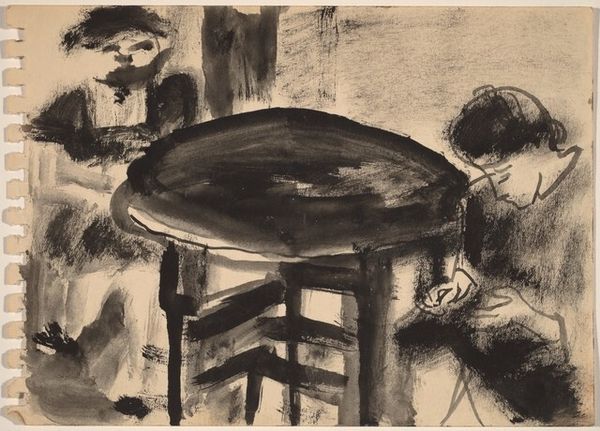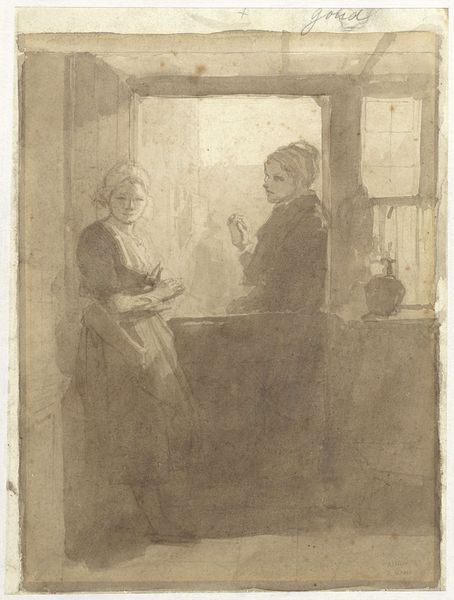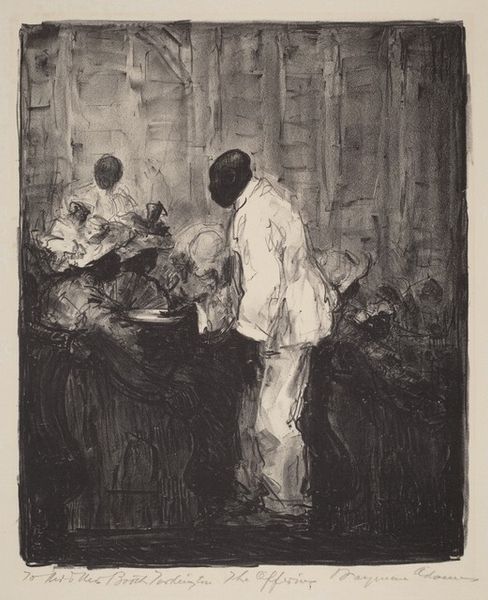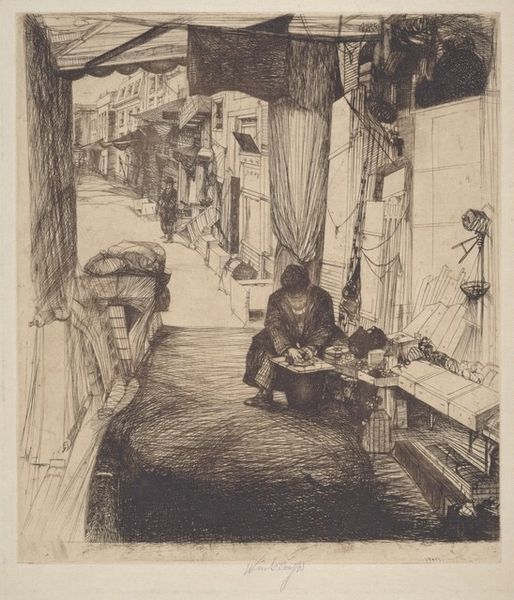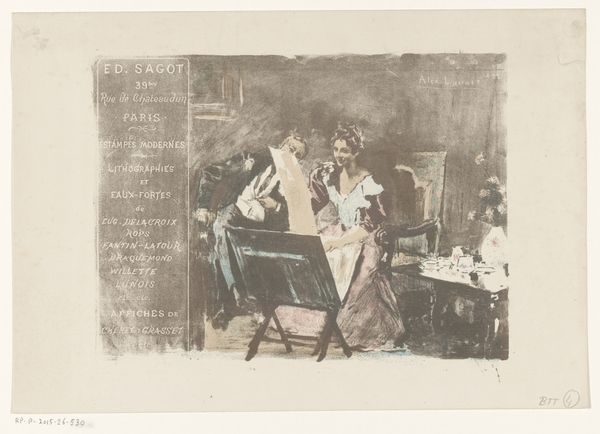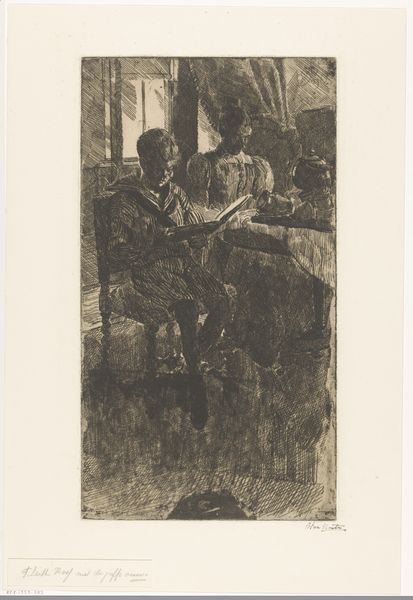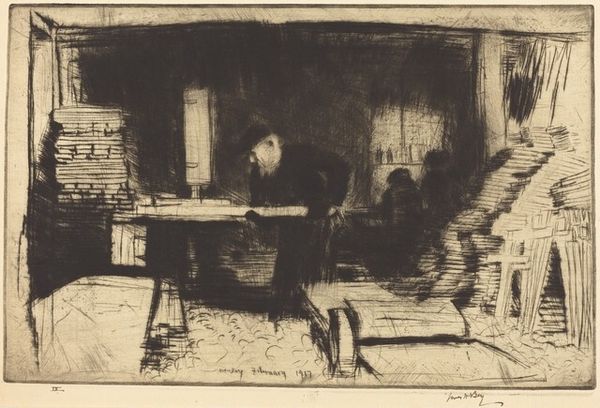
drawing, watercolor, ink
#
portrait
#
drawing
#
ink painting
#
impressionism
#
charcoal drawing
#
watercolor
#
ink
#
cityscape
#
watercolour illustration
#
genre-painting
#
watercolor
Copyright: Public domain
Curator: Welcome. Here we have Lesser Ury’s “Im Café Bauer,” dating to 1887, a piece rendered in watercolor and ink. It possesses a hauntingly serene mood, don’t you think? Editor: Haunting is the word. The tonal range here—the interplay of muted browns and sepia—contributes to a melancholic and intensely urban atmosphere. The brushstrokes are rapid, gestural…almost like capturing a fleeting moment, a feeling, rather than strict representational accuracy. Curator: It certainly evokes a mood—the late 19th century, the rise of the café culture in Berlin, intellectuals gathering to debate and create. Notice how Ury uses the light and shadow to emphasize their concentrated study of newspapers—in a time when printed news had massive social significance. Editor: Absolutely. The architectural structure here seems deliberate, those emphatic vertical strokes suggesting the imposing interior of the Café Bauer. Also, Ury cleverly employs what seems like a semiotic code – we interpret these men through their actions—reading. Each figure exists in his own private sphere even within a shared, social setting. Curator: Right—newspapers then are what personalized devices are now: tools to become alone together in public. Note also that their faces remain hidden or blurred. This anonymity reflects modern alienation; the rise of an individual within an ever-growing collective consciousness. Editor: A powerful commentary. The textural qualities achieved by ink and wash techniques, particularly how Ury blurs the boundaries between figures and setting, enhance the idea of detachment. It invites introspection regarding our relationship to physical and social space. Curator: It suggests a powerful tension: we see figures framed by the rigid lines of interior architecture that mirrors an existential rigidity. Yet, that stark formality is undermined by the blurry impermanence of newspaper, suggesting intellectual thought in all its evolving fluidity. Editor: Ultimately, Ury presents an uncanny portrayal. “Im Café Bauer” becomes an exploration into how interior and subjective experience can become irrevocably molded. A kind of mirror image where society reflects—distorted—within ourselves. Curator: Very true. It's a layered work, and a powerful reminder that our modern digital forms of media are also continuously shaping our experience in lasting, tangible ways. Editor: Yes. Ury’s piece continues to spark fresh discussion, offering insights regarding visual language and historical thought.
Comments
No comments
Be the first to comment and join the conversation on the ultimate creative platform.
